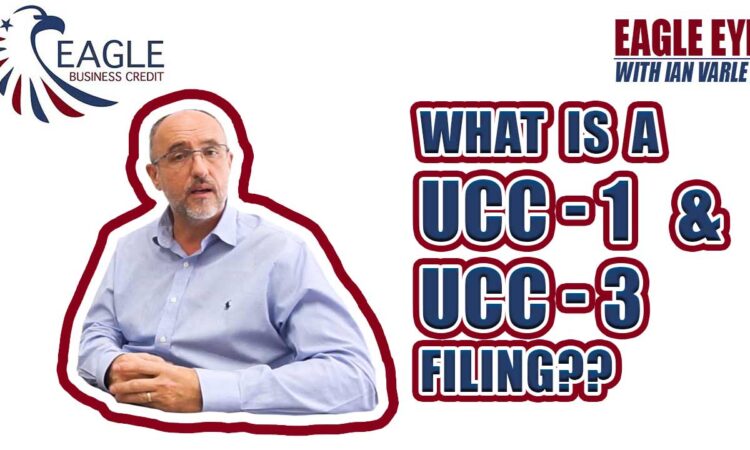What is a UCC filing and what does it mean to you as a business owner? If you discover that somebody has a UCC-1 filed on your business, is that a bad thing? Not necessarily. UCC filings are common, and you may not realize that you have one already on your business.
What Is a UCC-1 Filing?
What it means: it’s a statement of fact. It’s recorded at usually the state level with the secretary of state, that a lender owns certain collateral of your business. What do I mean by collateral? Well, if you have real estate and you have a mortgage, then the mortgage holder will file a lien on your property. It’s very similar, but with a UCC it can be on any asset of your business. So, if you have a lease on a truck or piece of equipment, chances are that the leasing company has filed a UCC on that specific piece of equipment or truck. They would file on the thing that you borrowed the money against or that you obtained the lease for.
How Can You Tell If You Have a UCC Filed on Your Business?
It’s a recording of fact that you owe money to another party, and that party has recorded that they own that asset that’s currently with your business. So, as a business owner you really need to know what UCC’s are filed on your business. Often, they can sit there and get out of date, and the lender may not terminate them. So, as you’re looking for finance, a new lender (secured lender) will always do a search on your company to see what UCC’s are in place. You should understand that that record is correct and complete.
Do You Have Old UCC Filings on Your Business?
Maybe you paid off a lease or maybe you shouldn’t have a UCC filed on a certain asset. You need to know about it. It could slow down your ability to get certain loans from other secured parties. You as a small business owner need to be aware that when you’re applying for loans or any form of finance, read the small print. If it mentions that you authorize them to file a UCC-1 then you are giving permission for that lender to make that entry in the books with the secretary of state that you now have a security position, that that lender owns part of your collateral.

When Can a Lender File a UCC on Your Business?
It’s important to understand at what point you are giving the lender the authority to make that filing. It may be very early in the stages where you’re just negotiating. You may sign a proposal but for whatever reason you don’t proceed. If you’ve given authorization for a UCC-1 to be filed, then that lender is probably going to do it fairly early in the game so that it’s recorded with the secretary of state. You may not be aware. You won’t get a notification. The lender then, if you choose not to proceed, isn’t going to remove that UCC-1 filing. So we’re finding a lot of companies when they come to us for finance are not aware that they have these filings, and we have to go through it with them.
What Is a UCC-3 Filing?
Another thing to be aware of is a UCC-3 filing. That is just a different form of UCC filing, and it’s a more versatile form. It covers in many different matters. So a UCC-1 is where a lender will take a security position. A UCC-3 is where they can then amend it, and an amendment can be any form. It can be extending that filing. It can be terminating that filing or changing certain information. Maybe the lender has sold their book to another lender, now it’s going to be assigned so it’s a different form of UCC filing.
Why Do UCC Filings Matter to You as a Small Business Owner?
As a small business owner, why is this important? You have to understand this terminology. UCC-1 is where the lender will take a security position on certain of your assets as their collateral. UCC-3 is where they either amend it or terminate it, and you need to understand if you have a filing on your company (a UCC-1) what you need to do to get that lender to file a UCC-3 to either get rid of it or amend it. It’s always important to speak to anybody that you take finance from. Understand at what point they’re going to make that collateral statement filing.

